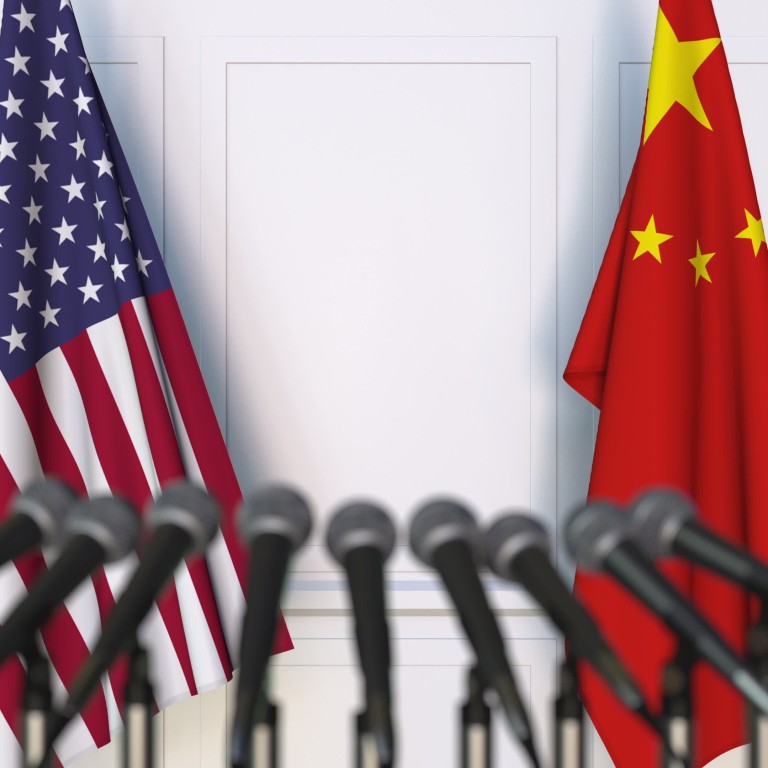
As US-China talks resume, an end to years of trade tariffs may not signal a soft landing in rivalry
- Some analysts say any move by Washington to cut tariffs on Chinese goods would be solely in its own interests, rather than signal an abrupt change in President Biden’s China policy
- But fresh talks between US and China are said to be a sign that communication will continue, and is necessary, given the state of the global economy
Tuesday’s long-awaited meeting between top economic officials from China and the United States appeared to be a step toward a widely anticipated rollback of punitive tariffs on some Chinese products, four years after being put into place.
In their first call since October, Chinese Vice-Premier Liu He was said to have had a “pragmatic and frank” exchange with US Treasury Secretary Janet Yellen on economic and tariff issues, as well as the importance of stabilising the global industrial and supply chains, according to the official Xinhua News Agency.
“The exchanges were constructive,” the party mouthpiece said, adding that both sides believed that the global economy “is facing severe challenges, and it is of great significance to strengthen the communication and coordination of China-US macro policies”.
However, Chen Fengying, a senior researcher with the China Institutes of Contemporary International Relations, said after the talks that the tariffs have little impact on Chinese exports, which have seen extraordinary rises during the pandemic, and that Beijing will not make concessions.
“[Tariff cuts would be] for the sake of addressing US problems, and only non-strategic goods would be eligible,” she said. “It doesn’t mean an abrupt China policy change by the Biden administration, nor a halt of the ongoing tech war.”
Xinhua reported that the Chinese side expressed its thoughts on the US potentially lifting tariffs and sanctions imposed on China, as well as on the fair treatment of Chinese enterprises.
“The two sides agreed to maintain dialogue and communication,” the agency added.
The notification, part of a legal requirement to review the tariffs years after they were first put into place, puts the burden on US businesses benefiting from those tariffs to speak out and say whether they want the policy to continue.
Under the policy, businesses have until Wednesday – the four-year anniversary of the first tariffs – to notify the USTR that they want them kept in place. That would then trigger a review from the trade office, which would include a period for the public to provide comments.
Lifting China tariffs would indicate an intention by the Biden administration to solve its livelihood, inflation and recession issues
“That leverage theory is actually hurting the interests of American consumers,” said Lu Xiang, a US expert at the Chinese Academy of Social Sciences. “The US is at risk of a recession. Lifting China tariffs would indicate an intention by the Biden administration to solve its livelihood, inflation and recession issues.”
Yellen has maintained her call for the cancellation of some China tariffs in recent months, as US inflation rose to a four-decade high of 8.6 per cent in May.
In a statement following Tuesday’s talks, the US Department of the Treasury called it a “candid and substantive conversation”.
“They discussed macroeconomic and financial developments in the United States and China, the global economic outlook amid rising commodity prices, and food security challenges,” it said, while referring to the talks as being “part of the administration’s ongoing efforts to maintain open lines of communication”.
Could Chinese demand soften the blow of a US recession on Asian economies?
The statement added that Yellen raised various issues of concern during the talks, “including the impact of Russia’s war against Ukraine on the global economy, and unfair, non-market [Chinese] economic practices”.
She was also said to be looking forward to future chats with Vice-Premier Liu, though there was no indication of when such talks may transpire.
On the Chinese side, the Ministry of Foreign Affairs followed the call by reiterating its long-standing rhetoric that Washington should remove all tariffs on Chinese products.
Ministry spokesman Zhao Lijian also rebuffed US accusations of non-market actions and said China’s economic success over the past four decades was a result of its market opening up and reform, as well as the effective combination of market forces and the government’s role.


